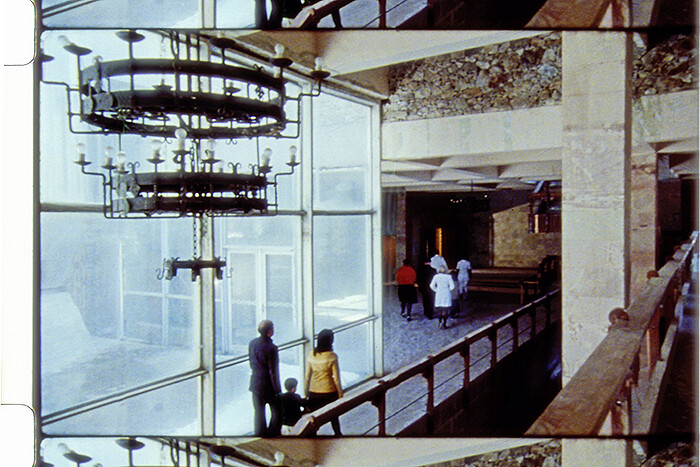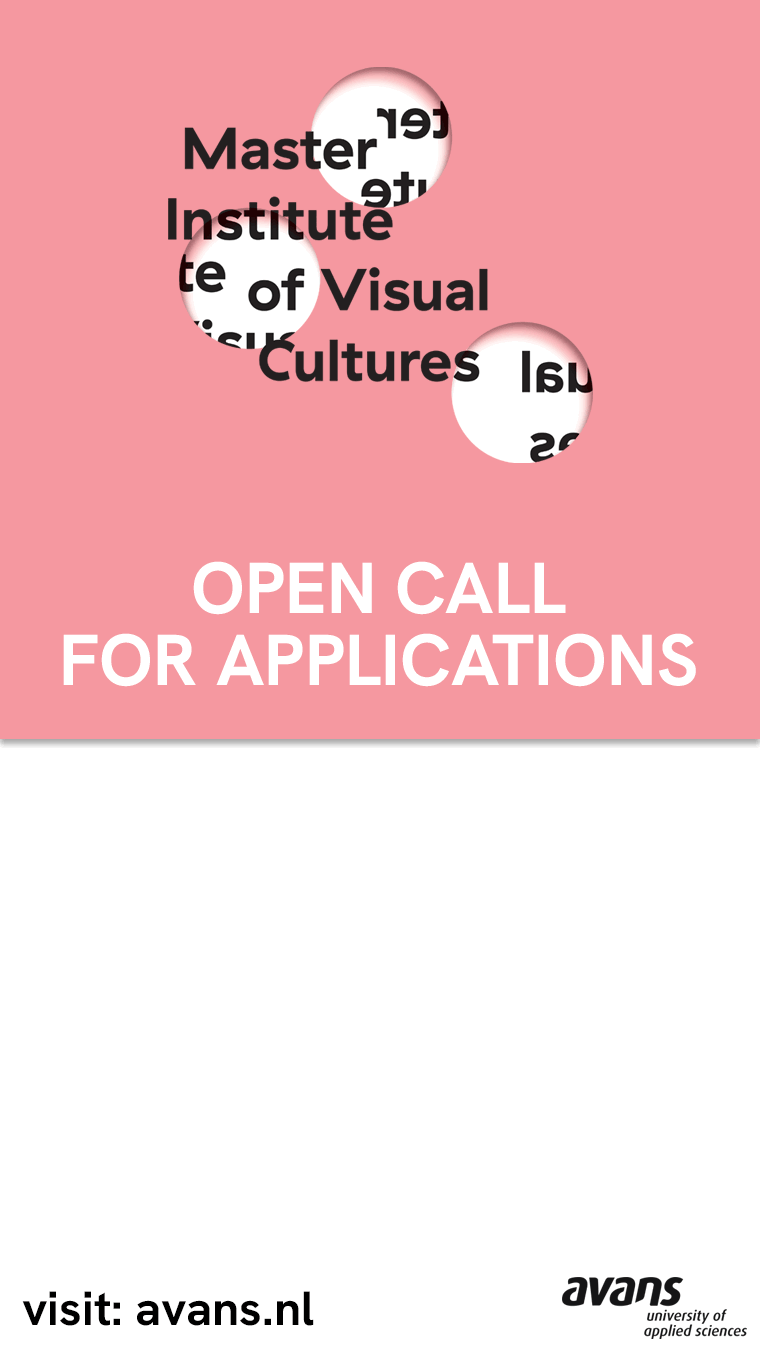For the inaugural iteration of Bergen Assembly—the first ever large-scale international contemporary art triennial in Norway’s second city—Moscow-based curators Ekaterina Degot and David Riff turned to another duo, Arkady and Boris Strugatsky, and their Soviet-era novel Monday Begins on Saturday as the exhibition’s guiding sprit. The book itself can be roughly summarized as an absurdist satire of Soviet bureaucracy centered on a fictional scientific research facility. There the researchers ceaselessly toil—without the respite of a weekend, as the title suggests—on investigations into human happiness, deploying magic and other seemingly unscientific, and often useless, methods. In a Pinocchio-like twist, lazy practitioners are punished by a curse, which causes profuse growth of hair on the ears. Although many of these “transgressors” face ridicule for their lax work ethic, they stay at the institute nonetheless for the job security it provides. Pulled into this comic orbit-cum-exhibition as a framing narrative, Josef Dabernig’s Hypercrisis (2011) more than smirks at torpid bureaucracies, and hints at other concepts in the show’s core vocabulary.
In this film-essay, the contemporary afterlife of a real, but vestigial, institution and its dilapidated home in today’s Armenia are surveyed by Dabernig’s patient and relentless camera. Set up in Soviet times, the site in question was designed as a work retreat for talented cinematographers to recharge, yet in the film, the only person in “official” residence is a sole writer suffering from a nasty case of writer’s block. The entire administrative staff of the retreat surrounds this unproductive figure, though instead of catering to the guest and his needs, they are rather busy indulging in grand feasts and basically having the run of the decaying place. Tellingly the film, which features a writer who isn’t able to write, lacks any dialogue.
Yet the visual story set up by the close framing of the camera and the expert pacing of the film’s editing is twinned with the sound track so as to advance the plot by other means. The parvenu staff is shown dining accompanied by Verdi’s Requiem—a funeral mass—while the writer listens in isolation to the Krautrock band Can (even though he “can’t”). The writer never proves a hero who can rise above his creative crisis—nor do the musicians, who in the ultimate scene bore the audience with a lackluster performance in the retreat’s disused cinema. Here the avenging angels are the film and Dabernig himself. Both, after all, manage to synthesize the atomized functions of photography, scripting, and score through the role of direction, and thus condemn the lack of leadership in the micro-society that is our setting.
Like Hypercrisis, the exhibition “Monday Begins on Saturday” delights in works that riddle conflict through a poetics of artistic construction so as to gesture at, but never telegraph, subtle critiques—often aimed at sense of being misled or led astray. Not only focusing on capital P politics, the show takes several jabs at the art system’s own structures of power. One of which is the spell of linguistic theory.
Art and philosophy, particularly those strains informed by post-structuralism, are awash in what is normatively called the “discursive” turn of twentieth-century thought. But advanced discursiveness today appears to be an academic game that fosters formulaic tropes—among them the notion of “artistic research” itself, which is taken to task in the exhibition—and other cliché ghosts that lack the revolutionary fire that once burned brightly. Yet long before and concurrent to the development of these forms of thinking, literature was the house of language. Along these lines, the show and its displays tweak these histories not only by foregrounding narrative style, but also by employing works that revel in literary devices such as satire, metonymy, conceit, parallelism, duration, and distantiation. The layout of the exhibition and the internal poetics of the show also underline this take, with works spread across the city of Bergen in eleven venues, each bestowed an “institute” moniker—the “Institute of Love and the Lack Thereof,” “Institute of Lyrical Sociology,” “Institute of Tropical Fascism,” etc. Whether or not these means can reinvigorate artistic and social dialogue remains to be seen; however, their welcome return does invite a kind of pleasure and play missing in the dry theorizing and professing of many large-scale shows. Likewise, these parodied institutes are tickled by pseudo office furniture, which at times lends an almost expressionistic feel to show’s superb detailing.
Twirling in these knots, particularly the bind of estrangement, the exhibition folds together several works that revisit sci-fi and fantasy genres as tools to fashion other allegories. In the “Institute of the Disappearing Future” (Bergen Kunsthall) we find Kiluanji Kia Henda’s lovely Icarus 13 (2008), an installation of forged documentation evincing the existence of a fictive Angolan space program marshaled to jumpstart the troubled nation “to the sun” on the borrowed wings of the now-clipped promise of the 1960s space race—the mythical Icarus of course died due to his hubris. In the same venue, Ivan Melnychuk and Oleksandr Burlaka—Grupa Predmetiv’s Island (2013) presents the plans of a “responsible Soviet modernist” architect who now plies his craft toward building neo-feudal compounds for a new form of governance, contemporary oligarchy, and plutocracy. In many ways these and other pieces on view collectively attempt to deconstruct the ideology of progressivism when the very idea of the “future” today has become the means par excellence for advanced capitalism’s colonization of time through its use of futures trading—itself the subject of Minze Tummescheit and Arne Hector—cinéma copains’s Fictions and Futures—Happiness in the Abstract (2013), a great two-channel video that perverts the quantitative analyst’s role in ushering in the still ongoing Great Recession of 2007. Tackling the ironic jest, other works invite a not dissimilar sense of inversion as various ideologies are exposed as cruel traps and false pathways.
In the “Institute of Love and the Lack Thereof,” the elegant A Border Musical (2013) by Chto Delat borrows from Brechtian Songspiele to tell the tale of Tanya, a young Russian woman from a mining town who dreams of a better life in Norway. To this end, she marries an earnest man from Finnmark and moves there with her son. However, when the child proves unruly in this land of excess, he is immediately taken from her as a ward of the state—a state that encourages Tanya to “join the family of perfect citizens” that is Norway. Relying on guignol scenography, and a twist that antiquates Plato’s Cave Allegory, Stephan Dillemuth’s Department of surv31llanc3&3ncr1pt10n (2013) in the “Institute of Defensive Magic” immerses the viewer in a world of surveillance wherein the projections of NSA monitoring are really just another form of distraction and disinformation, and the watchdogs—actually watch goats and other perverted effigies—are revealed as a captive audience of that system’s own unending feedback loop.
As an added bonus to the show’s return to literariness, these riff-like modes eschew the ever-present curatorial lip service to the associative “hyperlinking” of disparate works in favor of a rigorous employment of transitional devices. But more importantly, such evocations call forth a desire for change neither through the descriptive means of archival and documentary fare or through prescriptive pronouncements via manifestos and other totalizing programs. In Bergen, the counter-factual is the moderator, and her fundamental requisite, imagination, is the proposal to open new subject positions.
In all of these institutes, however, the wise would be wary of complacency and collaboration lest we find ourselves slipping into the roles of Dabernig’s indifferent administrators or worse, Grupa Predmetiv’s venal architect. Luckily, we can turn to the pages of Monday Begins on Saturday and its hairy-eared job shirkers.
With a keen eye toward the negative effects of the tourist-industrial machines that are biennials, triennials, and expos, this exhibition proposes its own prescient double agenda when it comes to questions of market recuperation. 1 Taken at face value, it might appear that the show suggests we simply render unto Caesar what is Caesar’s, and busy ourselves with bourgeois comforts so that we do not sacrifice the good on the altar of the perfect. Yet, the show dusts off the idea that it is necessary to push the contradictions of today’s society to their fullest. If we consider that the counter-factual requires the factual as its dialectical partner, the grand allegory of “Monday Begins on Saturday” provokes an idea that contemporary narratives, such as the “new normal” and “austerity,” are themselves ideological fictions which must be queered in the here and now so that we are not disenfranchised by the alleged promise of a glorious future “utopia.”
It should be noted that the relevance of the biennial format itself was first questioned locally in an international conference entitled “To Biennial or Not to Biennial” hosted in 2009 by the Bergen Kunsthall—a venue of this exhibition. That the result of such serious critical discussion was nonetheless the creation of a new recurrent exhibition, in the form of a triennial, is telling.












